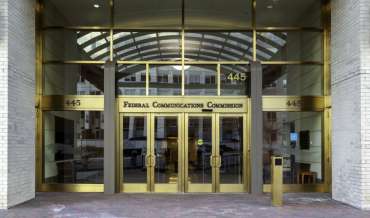Table of Contents
- Overview
- B2B Risks
- B2B Exemptions, State-Level Regulations, and Consent Requirements
- Frequently Asked Questions
Overview
It is a common misconception that Business-to-Business (B2B) calls and texts do not need to comply with telemarketing regulations. This is not entirely true. B2B calls are exempt from some provisions of the Federal Trade Commission’s (FTC) Telemarketing Sales Rule (TSR). But the Federal Communications Commission (FCC) subjects B2B calls and texts to the same Telephone Consumer Protection Act (TCPA) restrictions as Business-to-Consumer (B2C) calls and texts. The use of any kind of automatic telephone dialing system (ATDS) to send marketing calls or texts to a wireless number, B2B or B2C, is illegal under the TCPA without prior express written consent.
B2B Risks
Dual Purpose (Mixed Business & Personal Use) Lines
B2B marketers should check their data against state and federal consumer Do Not Call (DNC) lists to reduce the risk of calling or texting dual purpose phone lines.
Business Fax Lines
The TCPA prohibits the use of “any telephone facsimile machine, computer, or other device to send an unsolicited advertisement to a telephone facsimile machine,” which includes business fax lines.
Vicarious Liability
If you use outsourced vendors to make B2B calls or texts on your behalf, you may be held vicariously liable for their potential violations of the TCPA.
B2B Exemptions, State-Level Regulations, and Consent Requirements
Exemptions
The FTC exempts all solicitation calls between a marketer and a business except marketing of nondurable office or cleaning supplies. This means most B2B are exempt from national DNC laws, but not every state exempts B2B calls under state law. Some jurisdictions require B2B marketers to register and place a bond before making calls.
State Laws
- In 2019, Mississippi and Pennsylvania passed new telemarketing laws containing provisions allowing businesses to register for the states’ DNC lists.
- Colorado’s State Supreme Court has ruled that home-based business are eligible to register for the state’s DNC list.
Consent Requirements
Marketers can call/text using an ATDS provided they have proper consent. For marketing purposes, you must have express written consent. The written consent may be an e-signature or button press, but it must include the following disclosures:
- You must disclose that the calls or texts will be sent for marketing purposes.
- You must disclose that the calls or texts will be or may be sent using an automatic telephone dialing system.
- You must indicate that consent to receive the calls or texts is not a condition of any purchase.
- You must identify which brand will call and which number will be called.
Frequently Asked Questions
Are B2B calls exempt from the TCPA?
No. B2B calls are subject to all of the same TCPA regulations as B2C calls.
Are B2B calls exempt from the DNC list?
At the federal level, yes, B2B calls are exempt from the National DNC Registry (except for marketing calls related to nondurable office or cleaning supplies). But many states have DNC laws, some of which do not allow for B2B exemptions.
Why are dual purpose phone lines a source of risk?
Many people use the same mobile phone line for both business and personal purposes. A marketer may place a call to that number under the assumption that it is a B2B call only to find the call recipient claim that some B2C-related violations occurred. There is one infamous litigator who specializes in filing suit over calls to his dual purpose phone line.
Would a call to an individual employee at their place of work qualify for B2B exemptions?
No. Marketing calls that solicit consumers at their place of business rather than the “business entity” itself are not B2B solicitations and would be subject to all normal TCPA and DNC laws.





